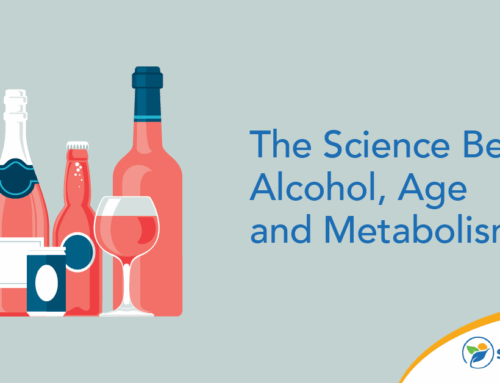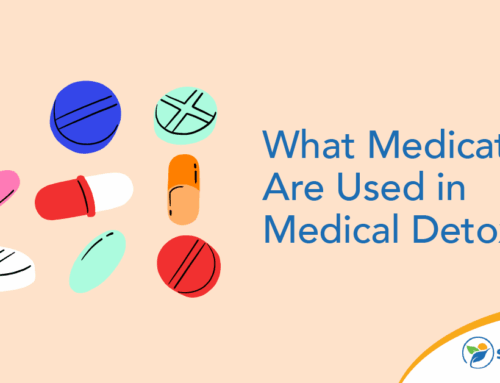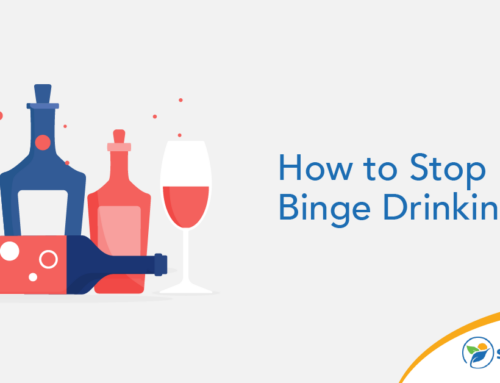Alcohol is a social lubricant commonly served at parties and other gatherings. Whether you enjoy a Friday night out or hit your local happy hour with friends, drinking alcohol is a common activity for many people. But alcohol is also a substance that can substantially affect your health and day-to-day life. After a drink or two, you may feel fine, but there are some physical effects of alcohol you should be aware of. Does alcohol thin your blood? And what are the consequences when your blood changes viscosity?
The Effect of Alcohol on Blood Viscosity: Does Alcohol Thin Your Blood?
In small amounts, alcohol thins blood. It reduces platelet counts and the stickiness of your blood, preventing clot formation. Some research even indicates that a drink a day may lower the risk of a stroke for some patients, but the opposite is also true for those who drink too much.
Newer research suggests that any benefits related to stroke prevention are often outweighed by increased risks of a bleeding or hemorrhagic stroke. Daily drinking in any amount may be associated with an increased risk of strokes related to blood clots.
The effects of a drink or two with a meal effectively answer the question “Does alcohol thin blood?” with a resounding yes.
Blood Thinning Mechanisms: Exploring How Alcohol Influences Blood Clotting Factors
One to two drinks of alcohol daily can impact how platelets coagulate, or stick together, making your blood slightly thinner than normal. However, heavy drinking can trick your platelets into turning on when they aren’t needed, creating blood clots. Long-term alcohol use can also increase the production of platelets, which also increases clot risk.
Thicker blood or blood clots that form absent any physical trauma can cause major health concerns, from pulmonary embolism and heart attacks to ischemic strokes. If a blood clot doesn’t break off and move somewhere more dangerous, it can still lead to limb swelling, pain and muscle death, as it blocks blood flow to affected areas. Deep vein thrombosis, or DVT, is the medical term for a clot that forms in the venous system. In most cases, these happen after surgical procedures or due to limited mobility, but alcohol consumption can be a major risk factor, particularly when combined with nicotine use.
No research clearly indicates what amount of alcohol is safe regarding blood viscosity. However, your risk factors for certain health complications rise with any amount of regular consumption.
Moderate vs. Excessive Consumption: Differentiating the Impact of Occasional and Heavy Drinking
An occasional drink is likely safe for most people, though there are exceptions. For example, if you take anticoagulants such as Eliquis, Coumadin, Plavix or even aspirin, the risks far outweigh any perceived benefits or temporary enjoyment. After all, combining alcohol with prescription blood thinner can cause uncontrollable bleeding, externally or internally. So, how do you handle alcohol and stop bleeding risks for someone on blood thinners? In this situation, hospitalization may be required.
Binge drinking, particularly when you do it multiple times per week, is where many of the larger risks come into play. Consistently consuming four or more drinks (for men) or three or more drinks (for women) several days each week can cause you to create dangerous clots.
Potential Risks and Benefits: Discussing the Implications of Alcohol-Induced Blood Thinning
Even just a few drinks per week can thin your blood. If you spent a night out enjoying alcohol, stopping your bleeding might require a longer period of time and extra intervention, even for mild cuts or abrasions.
While this can be useful for those at higher risk for an ischemic stroke, typically caused by a blood clot, the challenges of getting the right amount of alcohol for the individual and controlling dosage make this a less-than-ideal treatment option. Instead, most doctors are likely to offer prescription anticoagulants that do a better and more consistent job without some of the side effects of drinking.
Some effects of drinking too much and for too long can include:
- High blood pressure
- Heart disease
- Stroke
- Liver disease
- Digestive problems
- Various cancers
- Early dementia
While both heart disease and stroke are directly related to alcohol’s blood thinning/thickening effect, the potential negative consequences of drinking don’t stop there. If you have a medical reason to consider consuming alcohol, talk to a health provider first to get more information about the best ways to manage your condition.
Navigating Your Health: Considerations for Individuals With Underlying Medical Conditions
There are many health conditions impacted by alcohol consumption. Cardiovascular disease is one of the most common and high-risk problems that can go hand in hand with having a drink. While long-term overconsumption of alcohol can increase your risk of developing various types of cardiovascular disease, even a single drink a few times a week can shrink your arteries, eventually leading to heart failure.
Several types of cancer are also linked to alcohol consumption, making it a substance to avoid if you have other risk factors that may make it more likely you’ll develop cancer.
Have you ever heard of gout? Like arthritis, it’s a chronic condition that can be exacerbated by drinking alcohol, particularly beer. A buildup of uric acid can cause painful swelling, often focused around the joints.
Pancreatitis, both acute and chronic, is another possible illness directly related to drinking too much alcohol for too long. Simply getting pancreatitis increases your risk of developing diabetes, making it the last two-for-one special on your list. Moderate your drinking and stop immediately if you have any disease affecting your pancreas.
And, of course, if you’re taking blood thinners — for the short or long term — it’s never a good idea to mix alcohol with anticoagulants. A drink isn’t worth a trip to the hospital and possibly worse. Ordering up a mocktail to enjoy the flavor is a great way to be social without the health risks.
If you or a loved one is struggling to stop using alcohol, contact Restore Mental Health today. Our multidisciplinary team can help you with every step of the process, from medical detox to long-term help with your sobriety at home.







